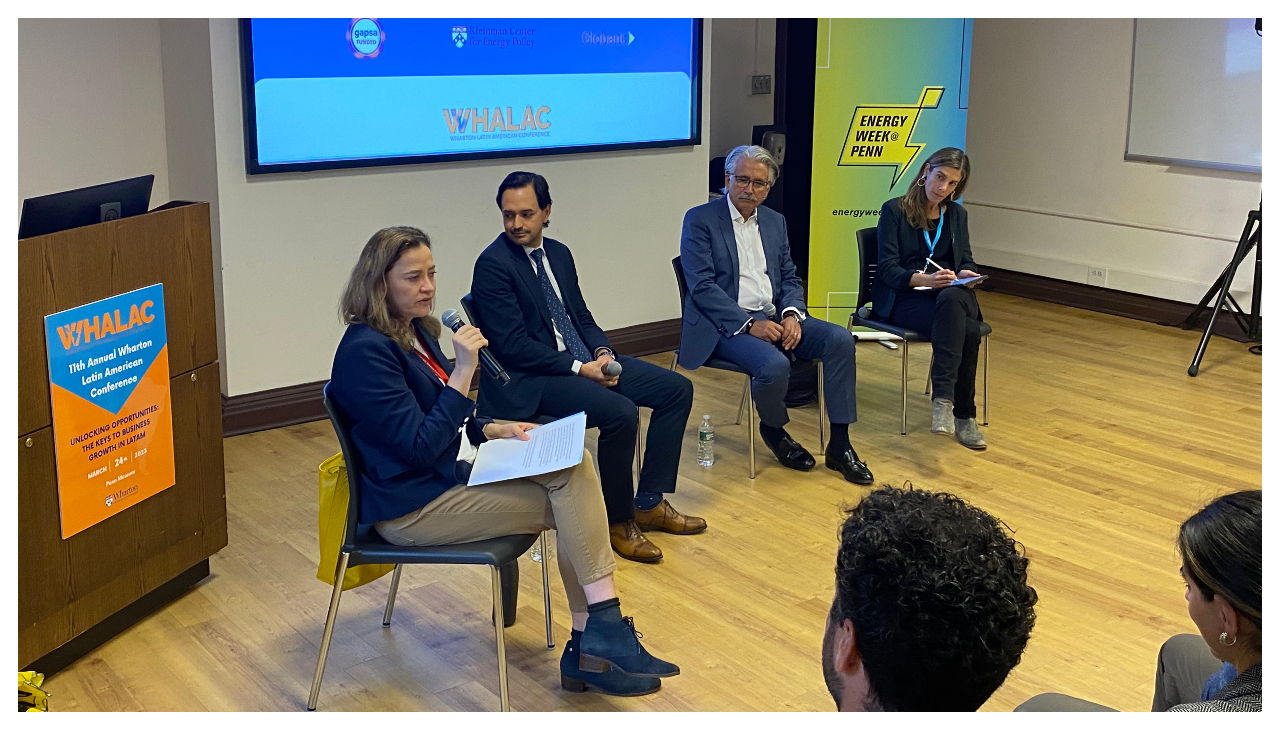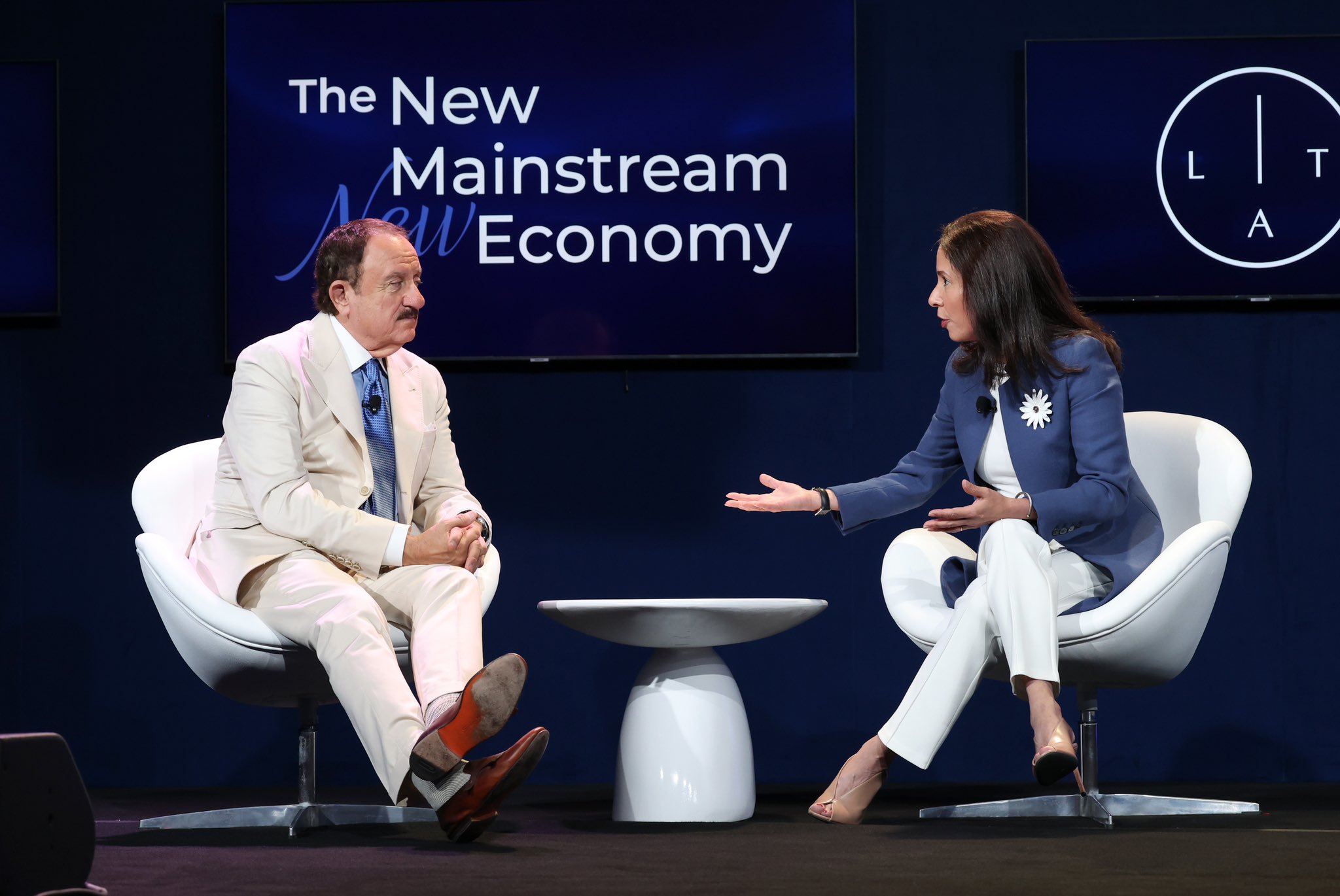
How will Latin America approach sustainability and fossil fuel use?
The 2023 Wharton Latin American Conference featured a panel discussion around renewable energy in Latin America, and how the region uses its oil.
Bringing together Latinos and economists alike is the Wharton Latin American Conference (WHALAC), hosted by The Wharton School of University of Pennsylvania. This year’s meeting was held on March 24, 2023, and was hosted by the Chairman of the Executive Board for Latin America for Wharton, Rosanna Ramos-Velita.
Despite South America’s relatively low carbon footprint, carbon emissions and other harmful wastes to the environment are a global issue, leading to a rise in global temperature.
As Latin America stands to be the most affected by the climate crisis, looking for ways to minimize the ecological impact made by future energy developments and how best to transition to renewable energy are important topics to consider.
To discuss this, WHALAC hosted a panel discussion about the various aspects of renewable and non-renewable energy use in Latin America, and how best to transition the various countries to renewable energy.
The panelists discussing this were Diego Mesa Puyo, the former Minister of Energy and Mines of Colombia; Verónica de la Cerda, the Board President of the First B-Corp in Latin America, Triciclos; and Ali Moshiri, the CEO and President of Amos Global Energy, and former President of Chevron Africa and Latin America.
The panel was moderated by Ángela Pachón, a research director at the Kleinman Center for Energy Policy University of Pennsylvania.
A Necessary Evil?
To give a broader sense of how entangled the issue of climate change is, de la Cerda described how emissions and their causes are prevalent in day to day life.
While half of all emissions come from a broad range of sources, the other half comes from the energy sector; from the generation, transportation, and use of electricity. Controlling the production of these emissions is thus vital to curbing the climate crisis.
But in Latin America, many countries are still dependent on fossil fuels in one way or another. One example is Colombia, with 40% of its exports being oil and coal. Other countries, such as Chile, do not have much natural fossil fuel, instead having many rich mineral resources needed in transitioning to renewable energy.
Another barrier is that approximately 17 million people across Latin America do not have access to electricity, de la Cerda explained. The goal in mind for the switch to renewable power should be to ensure that no one is left behind when discussing how to move forward.
Moshiri reinforced this idea, emphasizing the global need for energy, regardless of social class, income, or politics. It is a need that is impacted by changes anywhere in the world, whether they be domestically in the U.S. or abroad in Africa, Moshiri said as an example.
This can be seen through Russia’s invasion of Ukraine, a move that sent oil prices rising dramatically internationally. If there is no short- or long-term plan for ensuring there is energy, Moshiri said, then chaos would ensue.
He continued to emphasize the global need for oil, citing how hundreds of millions of barrels are consumed worldwide every day, and will continue to be consumed beyond energy production due to the utility of plastics and other oil based products.
Despite the evident need for future solutions, Moshiri has seen oil companies spout platitudes and visions rather than concrete plans for the future, an example being claims to reduce oil consumption by 40% by 2030, which are said to placate the public instead of creating an actionable and strategic plan to reduce emissions.
Currently, energy companies are focused on meeting this need by providing affordable energy, an immediate goal. In the midterm, their goals are to begin switching to renewables, and long-term to transition entirely to renewable energy.
But this transition isn’t going to happen on its own, Moshiri explained. The primary drive for this will be through consumers seeking renewable energy rather than just politicians pushing for the change.
In the face of such demand, how would curbing oil usage happen without someone on the inside of the companies?
RELATED CONTENT
Progress in Action
Puyo recalled his work as minister in Colombia, and how they set groundwork for non-conventional renewable energy, the term for renewable energy not commonly used in a country.
While Colombia has hydroelectric power, that can be impacted by strong weather events, such as El Niño. In order to transition to sources of renewable energy, they sought to bring in newcomers to the industry through improving pre-existing policies, creating fiscal incentives to bring in investors.
Combined with auctions for bids on renewable energy projects, they were able to increase the use of renewable energies from less than 0.2% of the country’s power grid’s demands, to supplying roughly 11% of the total energy needed.
For de la Cerda, changing how oil companies approached commitments to their environmental, global, and social (ESG) aspects of their business was something their investors held great power over.
The Ontario Teachers Pension Plan is an investor in multiple companies internationally, holding $247 billion in assets as it provides pensions for over 330,000 teachers. They also have a goal to cut down on emissions by 2025 and 2030 as a part of their mission of zero emissions on their investments by 2050.
In March 2022, de la Cerda was approached by a water utility company in Chile, approaching her company TriCiclos, a waste management company that eliminates waste producing processes for other companies.
They sought TriCiclos’ aid in this because the Ontario Teachers Pension Plan was one of their investors, and as such had financial incentives to cut down on their emissions. With TriCiclos, they were able to develop and put into action a strategic plan to cut down on their emissions by 2045.
The Carrot and Stick
In an explanation that no matter the action proposed, Puyo spoke on the need for coordination between policymakers, businesses, and consumers to create a smooth transition without disruptions to energy production.
By pricing externalities — the impact of a company’s industrial or economic activities on groups outside themself, with no bearing on costs — was how the panel defined the fiscal cost of carbon emissions, among other fines levied against companies to encourage the switch to renewables.
He likened this to the way a driver pays for car insurance before driving their car, where companies will need to pay for the byproducts of their business. While ideas of a direct tax were suggested, it was remarked by the panel that taxes raise costs for companies, who would in turn raise prices to compensate, costing consumers affordable energy.
But with the climate crisis on the horizon, and millions of barrels of oil needing to be consumed every day, the change to renewable energy remains a pressing issue for Latin America to confront.











LEAVE A COMMENT:
Join the discussion! Leave a comment.